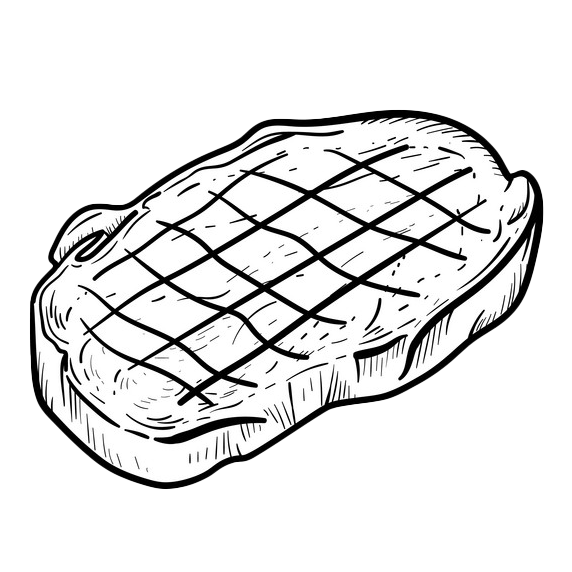Choosing the Right Supplements
What Supplements Do I Really Need?
Many of us have taken vitamins and other supplements since we were really young. From Flintstones chewables as a kid to One A Day multivitamins as adults, we’ve learned since a young age to supplement the foods we eat with a pill, gummy, or chew.
Similarly, certain health trends have ebbed and flowed throughout the years, from ads for Vitamin D to combat the winter blues, Vitamin C to boost the immune system, and fish oil for heart health and healthy weight management.
If you don’t follow a healthy diet, a multivitamin or other supplement may be helpful since you’re not getting all the vitamins and minerals needed from food. That said, no amount of supplements can erase the adverse effects of poor eating, so don’t think you can get by with a few pills and a side of Taco Bell.
As long as you’re not eating junk food all the time, most of us are getting the majority of our essential nutrients from food. So that leads us to the burning question: Do we really need supplements? It all depends on the particular vitamin, how the body absorbs it, as well as the nutritional needs of each person.
Here are a few supplements that might be worth trying. As always, check in with your doctor and get his or her expert opinion on it as well.
Magnesium
Magnesium is an essential mineral to the human body, yet the majority of us don’t get enough of it. A lack of magnesium could lead to headaches, muscle cramps, metabolic syndrome, migraines, and even heart attacks. Taking magnesium before bed could help you fall asleep. and promotes healthy heart health, bone strength, and healthy blood pressure. You can find magnesium in dark, leafy greens, but need to eat a lot of salad to get the amount of magnesium you would receive in a supplemental pill.
Vitamin C
You might associate Vitamin C with preventing illness, but it actually does much more than just combat the common cold. Vitamin C is an antioxidant that fights free radicals in the body, stabilizes cortisol levels, and builds strong tissue. It will help build a strong immune system and ward off anxiety or low levels of energy. Talk about a win-win. You can find Vitamin C in foods like papaya, broccoli, brussels sprouts, and strawberries.
Fish Oil
It might not sound like the most appetizing supplement, but fish oil could do wonders to your body and health. A fish oil supplement offers a hefty dose of omega-3s, which are connected to reducing inflammation, supporting brain function, and maintaining healthy hair and skin. Some say it’s a good way to maintain a healthy weight, too. If you’re regularly eating fish (cue: every night) you’re already ingesting a pretty good amount of this brain-boosting fat. However, if fish isn’t on the dinner table very often, it might be worth giving the supplement a shot.
Vitamin A
If you don’t eat meat, it might be a good idea to supplement your diet with Vitamin A, since it’s naturally found in things like egg yolks, organ meats, and dairy products. While this Vitamin is mainly found in animal by-products, you can also get some of it from dark, leafy greens and orange-colored veggies like carrots and sweet potatoes. Vitamin A supports healthy vision, bones and teeth, and a healthy metabolic function.
Calcium
A lot of us don't consume enough dairy products or other foods rich in calcium, which is needed build strong bones, prevent blood clots, and contract muscles. While it is possible to get enough of it in your diet, a lot of doctors typically recommend calcium supplements for women who have a higher risk of osteoporosis. You should also consider a calcium supplement if you follow a vegan diet (which omits dairy products), have a high-protein nutrition plan (which may cause your body to excrete more calcium) or have a health condition that hinders your body’s ability to absorb calcium, like Crohn’s disease.
Vitamin D
Vitamin D is a fat-soluble vitamin (which means it’s better ingested with food) that isn’t naturally found in many foods. This makes it a great candidate for a supplement! People also absorb Vitamin D from the sun, so an extra dose can be especially advantageous to take in the dark winter months. In addition to providing the body with a boost of feel-good energy, Vitamin D helps your body sustain normal levels of calcium and phosphorus and also plays a critical role in maintaining healthy bones.
Zinc
Zinc is a powerful mineral for many reasons: it can help clear up acne-filled skin, ward off sickness, or even support better health in people living with diabetes. Some say it can help with depression, too. Zinc is found naturally in foods like shellfish, beef, nuts, and legumes. Studies show that zinc intake among older adults is lacking, with up to 45 percent of people 60 years or older having zinc levels below the recommended amount.








